Baptists are a branch of Christianity distinguished by baptizing only professing Christian believers and doing so by complete immersion. Baptist churches generally subscribe to the doctrines of soul competency, sola fide, sola scriptura and congregationalist church government. Baptists generally recognize two ordinances: baptism and communion.
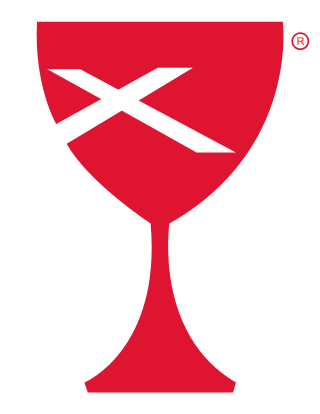
The Christian Church (Disciples of Christ) is a mainline Protestant Christian denomination in the United States and Canada. The denomination started with the Restoration Movement during the Second Great Awakening, first existing during the 19th century as a loose association of churches working towards Christian unity, then slowly forming quasi-denominational structures through missionary societies, regional associations, and an international convention. In 1968, the Disciples of Christ officially adopted a denominational structure at which time a group of churches left to remain nondenominational.

The Southern Baptist Convention (SBC), alternatively the Great Commission Baptists (GCB), is an association of Baptist Christian churches based in the United States. It is the world's largest Baptist organization and the largest Protestant and second-largest Christian body in the United States. The SBC is a cooperation of fully autonomous, independent churches with commonly held essential beliefs that pool some resources for missions.
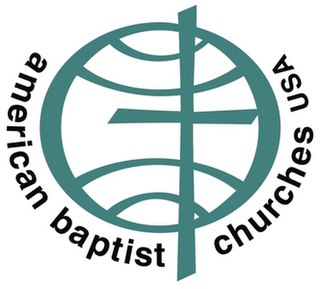
The American Baptist Churches USA (ABCUSA) is a Baptist Christian denomination established in 1907 as the Northern Baptist Convention, and named the American Baptist Convention from 1950 to 1972. It traces its history to the First Baptist Church in America (1638) and the Baptist congregational associations which organized the Triennial Convention in 1814.

The Baptist World Alliance (BWA) is an international Baptist association of Christian churches with an estimated 51 million people in 2024 with 266 member bodies in 134 countries and territories. A voluntary association of Baptist churches, the BWA accounts for about half the Baptists in the world.

The Progressive National Baptist Convention (PNBC), incorporated as the Progressive National Baptist Convention, Inc., is an association of Baptist Christian churches emphasizing civil rights and social justice. The headquarters of the Progressive National Baptist Convention are in Washington, D.C. Part of the Black church tradition, since its organization, the denomination has member churches outside the United States, particularly in the Caribbean and Europe. It is a member of the National Council of Churches and the Baptist World Alliance.

The Cooperative Baptist Fellowship (CBF) is an association of Baptist Christian churches in the United States, established after the conservative resurgence within The Southern Baptist Convention. It is affiliated with the Baptist World Alliance, and headquartered in Decatur, Georgia. According to a census published in 2023, the CBF claimed 1,800 churches and 750,000 members.

The Full Gospel Baptist Church Fellowship (FGBCF) or Full Gospel Baptist Church Fellowship International (FGBCFI) is a predominantly African-American, Charismatic Baptist denomination established by Bishop Paul Sylvester Morton—a Gospel singer and former National Baptist pastor. Founded as a response to traditional black Baptists upholding cessationism, Full Gospel Baptists advocate for the operation of Charismatic Christian spiritual gifts, while also holding to some traditional Baptist doctrine.

American Baptist College is a private, Baptist college in Nashville, Tennessee, affiliated with the National Baptist Convention, USA. Founded in 1924, its predecessor in black Baptist education was Roger Williams University, a Nashville college begun in the late-19th century and closed in the early 20th century. Upon full accreditation by the American Association of Bible Colleges, ABTS dropped use of the term "Theological Seminary" and renamed itself American Baptist College. The college has an 82% acceptance rate. In Fall 2019, 77% of students were retained after the first year of attendance.

Clear Creek Baptist Bible College (CCBBC) is a private Baptist Bible college in Pineville, Kentucky. It is affiliated with the Kentucky Baptist Convention. CCBBC provides a Bible-based education focusing on Christian service. The college is accredited by the Commission on Colleges of the Southern Association of Colleges and Schools and the Association for Biblical Higher Education. CCBBC was founded by Lloyd Caswell Kelly in 1926.

Russell D. Moore is an American theologian, ethicist, and preacher. In June 2021, he became the director of the Public Theology Project at Christianity Today, and on August 4, 2022, was announced as the magazine's incoming Editor-in-Chief.
Approximately 15.3% of Americans identify as Baptist, making Baptists the second-largest religious group in the United States, after Roman Catholics. Baptists adhere to a congregationalist structure, so local church congregations are generally self-regulating and autonomous, meaning that their broadly Christian religious beliefs can and do vary. Baptists make up a significant portion of evangelicals in the United States and approximately one third of all Protestants in the United States. Divisions among Baptists have resulted in numerous Baptist bodies, some with long histories and others more recently organized. There are also many Baptists operating independently or practicing their faith in entirely independent congregations.
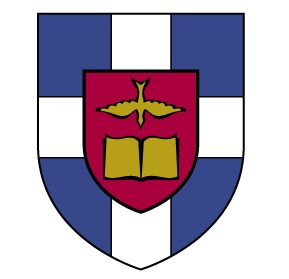
The Southern Baptist Theological Seminary (SBTS) is a Baptist theological institute in Louisville, Kentucky. It is affiliated with the Southern Baptist Convention. The seminary was founded in 1859 in Greenville, South Carolina, where it was at first housed on the campus of Furman University. The seminary has been an innovator in theological education, establishing one of the first Ph.D. programs in religion in the year 1892. After being closed during the Civil War, it moved in 1877 to a newly built campus in downtown Louisville and moved to its current location in 1926 in the Crescent Hill neighborhood. In 1953, Southern became one of the few seminaries to offer a full, accredited degree course in church music. For more than fifty years Southern has been one of the world's largest theological seminaries, with an FTE enrollment of over 3,300 students in 2015.
Beginning in 1979, the Southern Baptist Convention (SBC) experienced an intense struggle for control of the organization. Its initiators called it the conservative resurgence while its detractors labeled it the fundamentalist takeover. It was launched with the charge that the seminaries and denominational agencies were dominated by liberals. The movement was primarily aimed at reorienting the denomination away from a liberal trajectory.
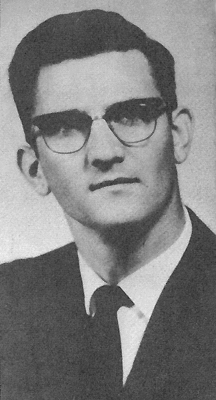
Reverend Dr. H. Dale Jackson was a Baptist minister, denominational leader and ethicist. He is most remembered for his efforts in promoting the historic distinctives of the Baptist faith; among those being the ideals of absolute separation of church and state, the authority of the Holy Scriptures, the autonomy of the local church, the priesthood of the individual, perseverance of the saints and the ordinances of believer's baptism by immersion and Holy Communion. For twenty years, he served as senior pastor of the Overland Baptist Church in St. Louis, Missouri.

Richard Henry Boyd was an African-American minister and businessman who was the founder and head of the National Baptist Publishing Board and a founder of the National Baptist Convention of America, Inc.

Frank S. Page was the president of the Southern Baptist Convention (SBC) from 2006 to 2008, and the president of the denomination's Executive Committee from 2010 to 2018. Page announced his resignation on March 27, 2018, admitting to "a personal failing" that involved a "morally inappropriate relationship." Frank Page now pastors Pebble Creek Baptist Church in South Carolina.
Baptist Seminary of Kentucky (BSK) is a Baptist theological institute located in Lexington, Kentucky. It is affiliated with the Cooperative Baptist Fellowship and the National Baptist Convention of America, Inc.
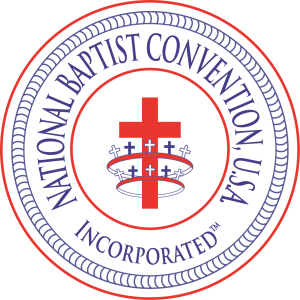
The National Baptist Convention, USA, Inc., more commonly known as the National Baptist Convention, is an association of Baptist Christian churches headquartered at the Baptist World Center in Nashville, Tennessee and affiliated with the Baptist World Alliance. It is also the largest predominantly and traditionally African American church in the United States and the second largest Baptist denomination in the world.

Julie Pennington-Russell is a prominent Baptist minister in the United States of America. She currently serves as senior pastor at the First Baptist Church of the City of Washington, D. C. Her ministry has provoked controversy due to disagreements concerning women in church leadership.

















